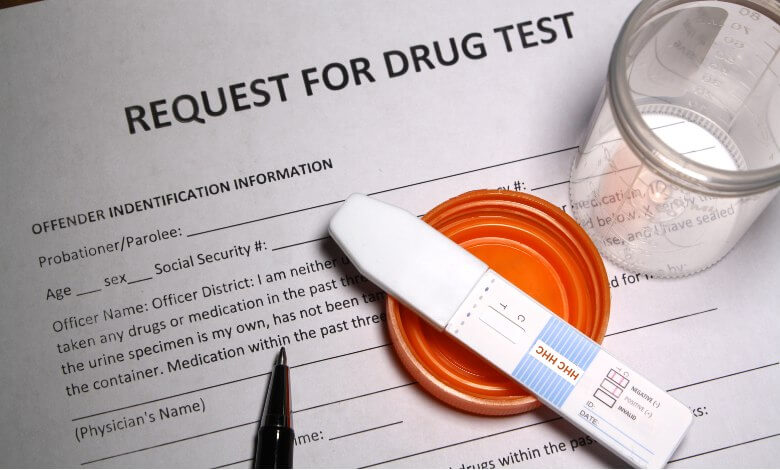As a reasonably new cannabinoid in the world of cannabis, HHC is a compound that people still have many questions about. Specifically, many consumers want to know about the relationship between HHC and drug tests and whether or not this cannabinoid will cause them to fail.
So, does HHC show up in urine tests? What about any drug tests?
Let’s talk about it.
-
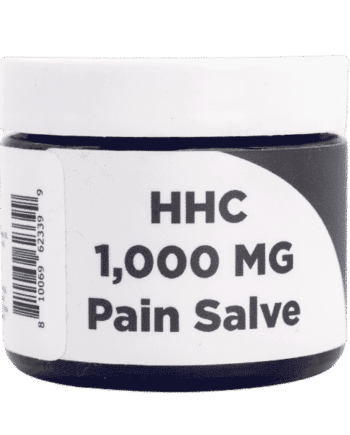 HHC Pain Salve – 1,000mg$49.99
HHC Pain Salve – 1,000mg$49.99 -
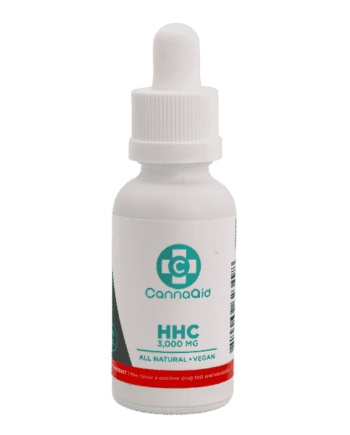 HHC Tincture$29.99 – $69.99
HHC Tincture$29.99 – $69.99 -
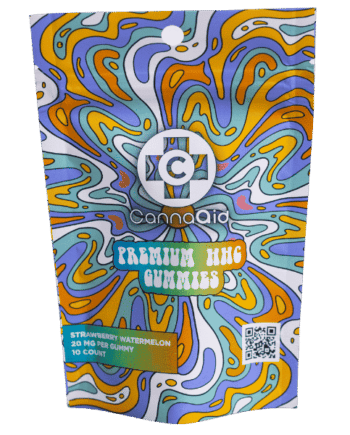 HHC Gummies – Strawberry Watermelon 10ct$14.99
HHC Gummies – Strawberry Watermelon 10ct$14.99 -
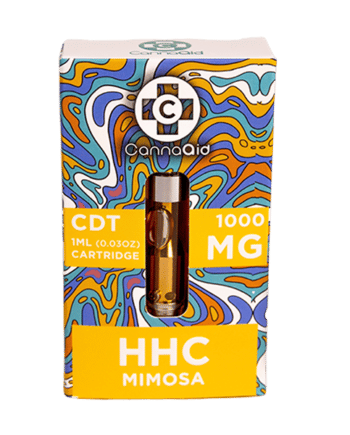 HHC Vape Cartridge 1ml$27.50
HHC Vape Cartridge 1ml$27.50
Table of Contents:
- Key Takeaways
- What is HHC?
- How Does HHC Work?
- Does HHC Show Up on a Drug Test?
- HHC Metabolism
- HHC Cross-Contamination
- Understanding Drug Testing Regulations
- Why Will HHC Produce A Positive Drug Test?
- How Long Does HHC Stay in Your System?
- Where Can You Find The Best HHC Products?
- Final Thoughts: HHC and Drug Testing
Key Takeaways
- HHC is a psychoactive compound that’s synthetically made of hemp-derived cannabinoids.
- Because of its similarity to THC, HHC is similarly metabolized in the body.
- HHC turns into THC-COOH when metabolized—the metabolite that drug tests seek. Thus, it can cause you to fail.
- HHC stays in your system for varying amounts of time based on factors like metabolism, dosage, and frequency of consumption.
- Avoid consuming THC and HHC if you have a drug test coming up; resume consumption once you’ve passed!
What is HHC?
Before we get into the nitty-gritty behind HHC and drug tests, let’s first discuss what HHC is and what you can expect from this unique, new cannabinoid.
In the cannabis plant, HHC is one of many compounds called tetrahydrocannabinol. This cannabinoid is considered a “minor” cannabinoid because it’s only present in minuscule amounts naturally within the plant, hence why researchers haven’t been focused on it for quite some time.
Since the cannabinoid only has a tiny natural presence in the cannabis plant, extracting and isolating the HHC compound is pretty tricky. Because of this, researchers have begun figuring out ways to synthesize the cannabinoid, making working with it a bit easier.
To create HHC, then, professionals take hemp-derived cannabinoids like CBD and subject them to a chemical reaction called hydrogenation—the process of combining hydrogen atoms with other molecules like CBD.
Here, the chemical structure of the cannabinoid is manipulated, changing it from CBD to HHC. From there, extractors can work with the compound more effectively, creating infused products like HHC gummies, an HHC tincture, or even an HHC disposable vape.
It’s important to note that HHC is a psychoactive cannabinoid, which means that it will make you feel high after you consume it. The actual strength of the compound varies from person to person and isn’t as intense as delta-9 THC, but it will create feelings of intoxication. Only if you’re okay with getting high should you try this compound.
Related Article – What is HHC?
How Does HHC Work?
In fact, the way HHC works in the body is still being investigated. As a new cannabinoid, we aren’t entirely sure how these synthesized compounds work within the body’s systems, but we do have a good idea.
The molecular structure of HHC is incredibly similar to that of THC; thus, we can assume that HHC works in the body in a similar fashion. Thus, when we consume HHC, the cannabinoids break down in the body and travel throughout the bloodstream. Eventually, they will reach and work with the endocannabinoid receptors in the central and peripheral nervous systems.
The system of cannabinoid receptors in our bodies is called the endocannabinoid system, or ECS for short. The ECS is responsible for regulating and monitoring several biological functions in the body, including things like mood, hunger, sleep, pain perception, and more.
Thus, when we consume HHC, it appears as though the cannabinoid binds well to the CB1 receptors in the body—the ones present in the central nervous system and brain. This means that consuming HHC will act similarly to THC in the body, creating intoxicating, psychoactive results.
Everyone’s ECS is different, so each person’s reaction to HHC will be unique. While some people may experience distinct results, others may find the cannabinoid more subtle. It simply depends on the person.
As we learn more about the ECS, we will also learn more about how HHC works in the body and, subsequently, how an HHC drug test may look.
-
 HHC Pain Salve – 1,000mg$49.99
HHC Pain Salve – 1,000mg$49.99 -
 HHC Tincture$29.99 – $69.99
HHC Tincture$29.99 – $69.99 -
 HHC Gummies – Strawberry Watermelon 10ct$14.99
HHC Gummies – Strawberry Watermelon 10ct$14.99 -
 HHC Vape Cartridge 1ml$27.50
HHC Vape Cartridge 1ml$27.50
Does HHC Show Up on a Drug Test?
Now that we’ve discussed what HHC is and how it works in the body, let’s answer the most pressing question: does HHC show up on a drug test?
It’s important to recognize that cannabis and drug testing can be tricky. When testing for marijuana, drug tests look for a metabolite called THC-COOH. The body produces THC-COOH after metabolizing THC – and other forms of THC.
Here’s where things get confusing: even cannabinoids that are THC adjacent—like HHC—are going to break down and turn into THC-COOH in the body. So, while an HHC drug test, precisely, does not exist, drug tests can still pick up on the presence of cannabinoids like HHC and cause you to fail.
Urine tests, specifically, are designed to look for the presence of THC-COOH, and these are the most common types of drug tests used for employment or other circumstances.
So, while HHC technically doesn’t show up on a drug test, the presence of the cannabinoid in the body will still cause you to fail your test for marijuana. As tests are right now, they cannot distinguish the difference between THC and HHC, so any presence of THC-COOH will simply cause a failure. Therefore, if you’re not careful, HHC may cause you to fail a drug test.
HHC Metabolism
Again, it’s important to note that we aren’t 100% sure how HHC is metabolized in the body or how it works with the ECS. But, based on what we know about HHC’s similarities to THC, it appears as though HHC likely metabolizes itself in the body in a similar fashion to THC. Let’s talk first, going over THC.
When you ingest cannabinoids like THC, the compounds undergo a series of processes in the body related to metabolism. The primary metabolic place is in the liver, where the cannabinoid transforms into different metabolites before it eventually passes through the body.
After going through the liver, the THC cannabinoid transforms into something called 11-hydroxy-THC, which is another psychoactive metabolite. From there, further metabolism occurs, transforming the 11-hydroxy-THC metabolite into, you guessed it, THC-COOH. As we mentioned, THC-COOH is mainly responsible for the long detection window of THC and other cannabinoids in the body.
So, if we’re right in assuming that HHC metabolizes in the body the same way that THC does, we can assume that HHC does, in fact, turn into THC-COOH and is detectable on drug tests.
Again, we will need further proof and more long-term studies to concretely say that this is how HHC metabolizes in the body. But, for now, it appears its similar molecular structure leads to a very similar breakdown in our systems.
HHC Cross-Contamination
Often, HHC is primarily responsible for making you fail your drug test because of cross-contamination. Essentially, pure HHC products are still going to contain detectable levels of THC. Having both HHC and THC, as well as other cannabinoids that may be THC adjacent, cross-contaminates the product, making it much more likely for it to cause you to fail a drug test.
Nearly all HHC products are made with other cannabinoids, not just HHC. As we mentioned, getting high amounts of HHC is very difficult because of its low presence in the plant, so manufacturers tend to combine HHC extract with additional compounds. This creates a more productive experience overall. But it also means that you’re at a higher risk of failing your drug test.
It’s essential to consider cross-contamination when preparing for a drug test. An HHC drug test looks for the presence of THC-COOH, a metabolite that not only comes from HHC but other THC variants as well.
-
 HHC Pain Salve – 1,000mg$49.99
HHC Pain Salve – 1,000mg$49.99 -
 HHC Tincture$29.99 – $69.99
HHC Tincture$29.99 – $69.99 -
 HHC Gummies – Strawberry Watermelon 10ct$14.99
HHC Gummies – Strawberry Watermelon 10ct$14.99 -
 HHC Vape Cartridge 1ml$27.50
HHC Vape Cartridge 1ml$27.50
Understanding Drug Testing Regulations
When understanding HHC drug tests and whether or not this compound can cause you to fail, it’s important to remember general drug test regulations. However, specific regulations and policies can change as laws and attitudes toward cannabis change, too.
In general, you may be subjected to drug testing due to your employment. Some employers will conduct pre-employment drug screenings to ensure that the person they’re hiring doesn’t have drugs in their system. The presence of THC in these circumstances can sometimes lead to disqualification from the job, but it does greatly depend on the employer and even where you’re at.
Athletes may also be subject to drug testing regulations, as many sports organizations prohibit the consumption of THC. The same testing may be required if you are a member of law enforcement or the military.
In states where medical cannabis is legal, specific regulations may exist concerning drug testing for THC or other cannabis-related compounds. Some employers may accommodate cardholders, but you must prove that you have an up-to-date MMJ card with a qualifying medical condition.
Finally, it’s essential to understand that you may be subject to different drug tests depending on why you’re taking the test. Urine tests and saliva tests are the two most typical drug tests. Blood drug tests are typically only done after accidents or crimes, and hair drug tests are even less common because they’re tricky and expensive. You will most likely be asked to perform a urine drug test to see whether or not you test positive for cannabis or psychoactive compounds like HHC.
Why Will HHC Produce A Positive Drug Test?
Due to the way HHC works in the body, it will result in a positive drug test. Like THC, HHC metabolizes in the body similarly to cannabinoids. Because the process is so similar, drug tests can’t distinguish what cannabinoid is being metabolized—THC or not. When you consume hemp-derived cannabinoids, the drug test will detect the presence of the HHC-derived metabolite and say you are positive for marijuana.
In the future, as we learn more about HHC and how it works in the human body, we can learn more about its metabolization process and what we can do to avoid it causing a positive drug test. But, as it stands, HHC products—no matter the type —will likely cause you to fail a drug test based on how they act in the body.
How Long Does HHC Stay in Your System?
How long HHC stays in your system depends highly on factors such as frequency of consumption, product dosage, individual tolerance, and body chemistry.
HHC will remain in the body longer if you consume it frequently. This is because you create a build-up of HHC each time you finish it and do not allow your body to process it fully. For example, when you consume HHC once, the metabolites may hang around for about 48-72 hours.
But if you consume more HHC within that window, you’re simply adding more HHC to the pile, making it take longer for the metabolites to dissipate. So, if you need to pass a drug test soon, you’ll have to make sure that you’re clean of HHC for several weeks to ensure that your body has eliminated the compound.
Of course, the stronger the product, the longer it will hang around. The higher your dosage, the more cannabinoids you load into the system. Someone who consumes low-dose HHC products versus high-dose HHC products will have their system free of HHC quicker than the other.
As a final consideration, you should also consider your body’s chemistry. If you have a relatively slow metabolism that takes a while to work through foods or substances, then you can expect the same for your cannabis products.
Where Can You Find The Best HHC Products?
Whether you’re interested in HHC gummies, HHC vape cartridge, an HHC tincture, or something completely different, the best place to buy these products will always be CannaAid Shop.
CannaAid offers top-shelf products at low, affordable prices, and we can ship these products right to your door. With us, there’s no waiting involved: you’ll place your order and have your top-shelf HHC products at your door just a few days later.
Buying your favorite HHC products has always been more challenging than with CannaAid Shop.
-
 HHC Pain Salve – 1,000mg$49.99
HHC Pain Salve – 1,000mg$49.99 -
 HHC Tincture$29.99 – $69.99
HHC Tincture$29.99 – $69.99 -
 HHC Gummies – Strawberry Watermelon 10ct$14.99
HHC Gummies – Strawberry Watermelon 10ct$14.99 -
 HHC Vape Cartridge 1ml$27.50
HHC Vape Cartridge 1ml$27.50
Final Thoughts: HHC and Drug Testing
So, when it comes to HHC and drug testing, it’s important to remember that HHC shows up on a drug test as THC, causing you to fail. If you have difficulty coming up, stay away from HHC and other THC-based products until you’ve passed; when you’re in the clear, you can return to enjoying your go-to options from CannaAid Shop online store.

